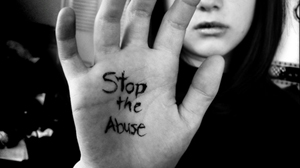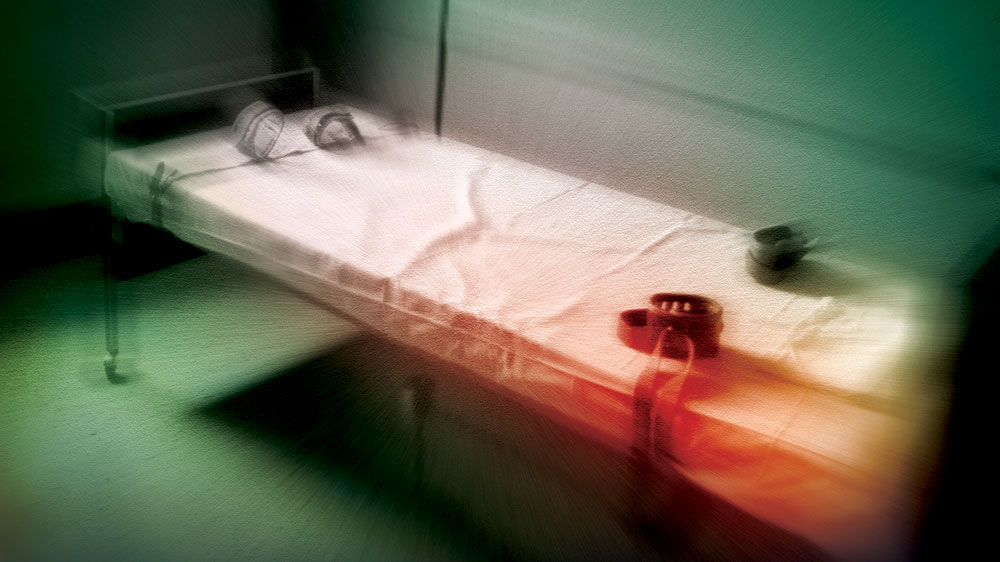By CCHR International
The Mental Health Industry Watchdog
November 16, 2016
The parents of a deceased Massachusetts teenager are seeking to expand a lawsuit against the country’s largest psychiatric hospital company, Universal Health Services (UHS), alleging that staff used a fraudulent psychiatric form to try to involuntarily commit their daughter. An Arbour Health System counseling center, owned by UHS, tried to have Yarushka Rivera involuntarily hospitalized using a commitment form pre-signed by psychiatrist Maria Gaticales, who had not even seen the teen, the parents said.[1]
The mental health rights watchdog, Citizens Commission on Human Rights (CCHR) said that no state should allow “pre-signed” psychiatric forms to be used to admit people involuntarily to a facility and detain a person against their will. The group is calling upon any staff or former staff of UHS or other for-profit psychiatric facilities to come forward with evidence of this or any other abuse or fraud witnessed.
A UHS attorney claimed that Massachusetts Department of Mental Health rules allow doctors to initiate commitment without examining the patient. He also claims that the social worker had consulted with the psychiatrist by phone.[2] However, CCHR’s international president, Jan Eastgate, said if this is true, the practice should be prohibited.
“We’ve investigated other psychiatric hospitals where patients have been admitted, then treated based on pre-signed medication forms and died from the treatment administered them. Allowing individuals to be admitted to a psychiatric facility based on a pre-signed form or even a phone call without even seeing the individual puts them at serious risk,” Eastgate stated.
CCHR’s co-founder, the late Dr. Thomas Szasz, professor of psychiatry, defined such practices as unconstitutional: “The most important deprivation of human and constitutional rights inflicted upon persons said to be mentally ill is involuntary mental hospitalization….”[3]
Arbour, which includes five psychiatric hospitals and 13 counseling centers in Massachusetts has been cited repeatedly by state regulators over poor care, reports the Boston Globe.[4] According to a UHS Security Exchange Commission (SEC) filing, the company is also the target of federal criminal and civil investigations at its behavioral health facilities nationwide, including its corporate headquarters.[5] The U.S. Department of Justice and Office of the Inspector General have ongoing criminal and civil investigations into twenty-six of UHS’s behavioral facilities for potential billing fraud.[6]

“The most important deprivation of human and constitutional rights inflicted upon persons said to be mentally ill is involuntary mental hospitalization….” — Dr. Thomas Szasz, CCHR’s co-founder and professor of psychiatry
The Occupational Safety and Health Administration (OSHA) in Massachusetts also recently announced it has been investigating patient-care violations and concerns over worker safety with violent patients at UHS psych facilities in Brookline, Attleboro, Lowell and Pembroke. “The probes by OSHA come on the heels of increased oversight of Arbour-owned hospitals by numerous regulators, including the Massachusetts Department of Mental Health, which licenses the hospital, the Centers for Medicare and Medicaid Services and the U.S. Department of Justice,” OSHA reported.[7]
CCHR has alerted hundreds of state legislators and officials across the country about concerns in for-profit psychiatric-behavioral facilities, including rates of violence that, CCHR says could be influenced by prescription psychotropic drugs that studies link to causing violent behavior and should be investigated.
A representative of UHS’s behavioral sector recently wrote a California mayor, disabusing him of any concerns about such investigations which he passed off as an “unfortunate but common reality facing the healthcare provider industry.” But CCHR says more than 100 articles between 2013 and 2016 exposing everything from billing fraud to wrongful deaths and child injuries in UHS behavioral facilities are indicators of potential systemic abuse. (View the articles here)
The Massachusetts parents’ original lawsuit against UHS centers on allegations that the company submitted fraudulent bills to the state Medicaid program for their daughter’s care and that of other patients. They are seeking to expand this suit to also challenge how their daughter was committed to the UHS facility.
In 2014, The Economist reported that “Health care is a tempting target for thieves. Medicaid doles out $415 billion a year; Medicare…nearly $600 billion.” An estimated $98 million is lost to fraud in annual Medicare and Medicaid spending—and up to $272 billion across the entire health system.[8] Mental health is overrepresented, which could be tied to high profit margins. According to the Chicago Tribune, investors like the mental health industry because the profit margins are much bigger than those at community hospitals providing a broad range of medical services.
According to a study published in the International Journal of Pharmaceutical and Healthcare Marketing, “The only medical specialty wildly overrepresented in the ranks of Medicare fraudsters is psychiatry.[9] Richard Kusserow, a former 11-year U.S. Department of Health and Human Services Inspector General, also pointed out that “Many health care fraud investigators believe mental health caregivers, such as psychiatrists and psychologists, have the worst fraud record of all medical disciplines.”[10]
Kusserow describes some of the fraud schemes:
- Altering and/or falsifying records to match services billed
- Billing for services not actually performed
- Paying kickbacks to recruiters to find beneficiaries
- Billing for service not covered by Medicaid as a covered service
Billing for a more expensive service than was actually rendered - Prescribing category narcotic drugs to addicts or for selling on the street
- Changing the billed date of service to match client dates of eligibility
- Deliberately applying for duplicate reimbursement in order to get paid twice
- Inappropriate billing that results in a loss to the Medicaid program
- Providing services which are not necessary
- Billing for services performed by unqualified persons[11]
CCHR calls for anyone whose mother, wife, sister, or father, brother, son, child or friend has been killed or damaged by psychiatric “treatment” in for-profit psychiatric facilities or any staff or former staff of such facilities with knowledge of healthcare fraud especially to please write CCHR full particulars with any documentary evidence.
References:
[1] Liz Kowalczyk, “Family says Arbour Health System tried to commit their daughter with fraudulent ‘section 12’ form,” Boston Globe, 25 Oct. 2016, https://www.bostonglobe.com/metro/2016/10/24/family-says-arbour-health-system-tried-commit-their-daughter-with-fraudulent-section-form/qXlJQ9ksFr0aqobNkimOiO/story.html
[2] Ibid.
[3] https://www.cchrint.org/about-us/co-founder-dr-thomas-szasz/quotes-on-involuntary-commitment/
[4] Op. cit., Liz Kowalczyk, Boston Globe.
[5] “Universal Health Systems’ behavioral health centers under investigation for alleged billing fraud: Investigation, which dates back to 2008, is focused on billings submitted to government payers, Universal says,” Healthcare Finance News, 8 Mar. 2016, http://www.healthcarefinancenews.com/news/universal-health-systems-behavioral-health-centers-under-investigation-alleged-billing-fraud
[6] United States Securities and Exchange Commission, Form 10-Q, Universal Health Services, For the quarterly period ending September 30, 2016, http://ir.uhsinc.com/phoenix.zhtml?c=105817&p=irol-SECText&TEXT=aHR0cDovL2FwaS50ZW5rd2l6YXJkLmNvbS9maWxpb
mcueG1sP2lwYWdlPTExMjE5NzY0JkRTRVE9MCZTRVE9MCZTUURFU
0M9U0VDVElPTl9FTlRJUkUmc3Vic2lkPTU3; Susan Morse, “Feds widen fraud probe of Universal Health Services to include headquarters,” Healthcare Finance, 1 Apr. 2015, http://www.healthcarefinancenews.com/news/feds-widen-fraud-probe-universal-health-services-include-headquarters; Evan Sweeney, “DOJ expands criminal fraud investigation to Universal Health Services headquarters,” Fierce Healthcare, 6 Apr. 2015, http://www.fiercehealthcare.com/antifraud/doj-expands-criminal-fraud-investigation-to-universal-health-services-headquarters; Brooke Murphy, “5 UHS behavioral health hospitals under investigation for billing fraud,” Becker’s Hospital Review, 8 Mar. 2016, http://www.beckershospitalreview.com/legal-regulatory-issues/5-uhs-behavioral-health-hospitals-under-investigation-for-billing-fraud.html; “Universal Health Systems’ under investigation for alleged billing fraud,” Insurance Fraud News, 28 June 2016, http://www.insurancefraud.org/IFNS-detail.htm?key=23000
[7] Chris Burrell, “OSHA launches four more investigations at Arbour psychiatric hospitals,” WGBH News, 11 Nov. 2016, http://news.wgbh.org/term/pembroke; Chris Burrell, “OSHA launches four more investigations at Arbour psychiatric hospitals,” OSHA News, 13 Nov, 2016, http://www.oshatoday.com/news-digest-item/fed-osha-launches-four-investigations-arbour-psychiatric-hospitals/
[8] “The $272 billion swindle,” The Economist, 321 May 2014, http://www.economist.com/news/united-states/21603078-why-thieves-love-americas-health-care-system-272-billion-swindle
[9] Vivek Pande and Will Maas, “Physician Medicare fraud: characteristics and consequences,” International Journal of Pharmaceutical and Healthcare Marketing, Vol. 7, No. 1, 2013, pp. 8-33; https://books.google.com/books?id=ksrdCgAAQBAJ&pg=PA20&lpg=PA20&dq=The+only+medical+specialty+
wildly+overrepresented+in+the+ranks+of+Medicare+fraudsters+is+psychiatry
&source=bl&ots=i8citgyIxx&sig=3WfqhS8vP7obvW2KfFt1baER9ik&hl=en&sa=X&ved
=0ahUKEwiIhfiJ-5nQAhXprVQKHc-1C30Q6AEIGzAA#v=onepage&q=The%20only%20
medical%20specialty%20wildly%20overrepresented%20in%20the%20ranks%20of%
20Medicare%20fraudsters%20is%20psychiatry&f=false; http://www.emeraldinsight.com/doi/abs/10.1108/17506121311315391?journalCode=ijphm
[10] Richard P. Kusserow, “Mental Health Ranks High on Fraud Scale – Many health care fraud investigators believe mental health caregivers, such as psychiatrists and psychologists, have the worst fraud record of all medical disciplines,” 23 Sept. 2014, https://groups.google.com/forum/?nomobile=true#!topic/alt.health/lwN0yWnF5uE
[11] Ibid.



SHARE YOUR STORY/COMMENT